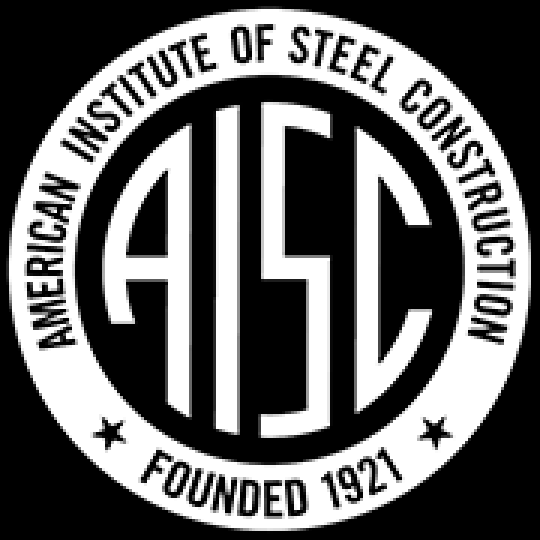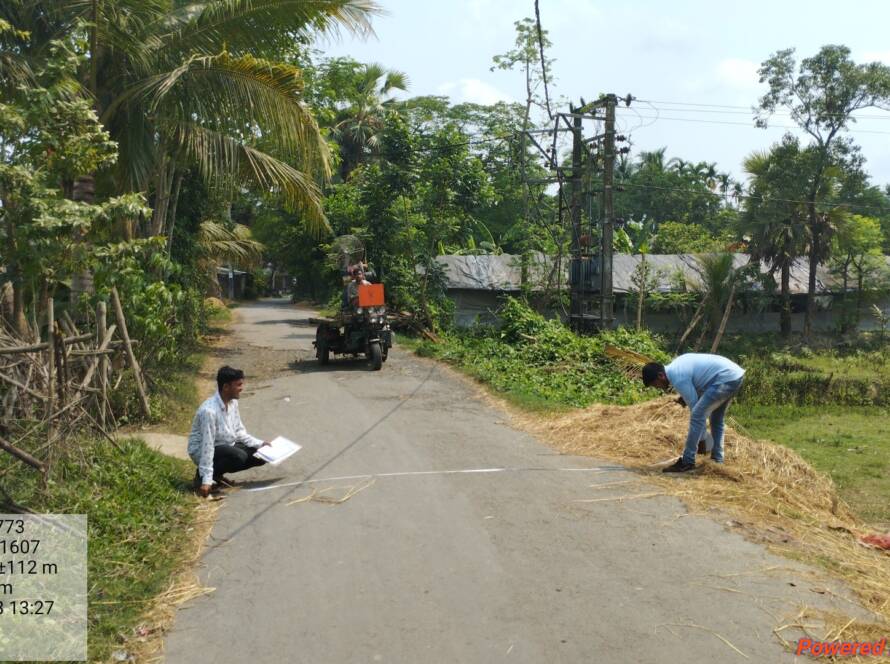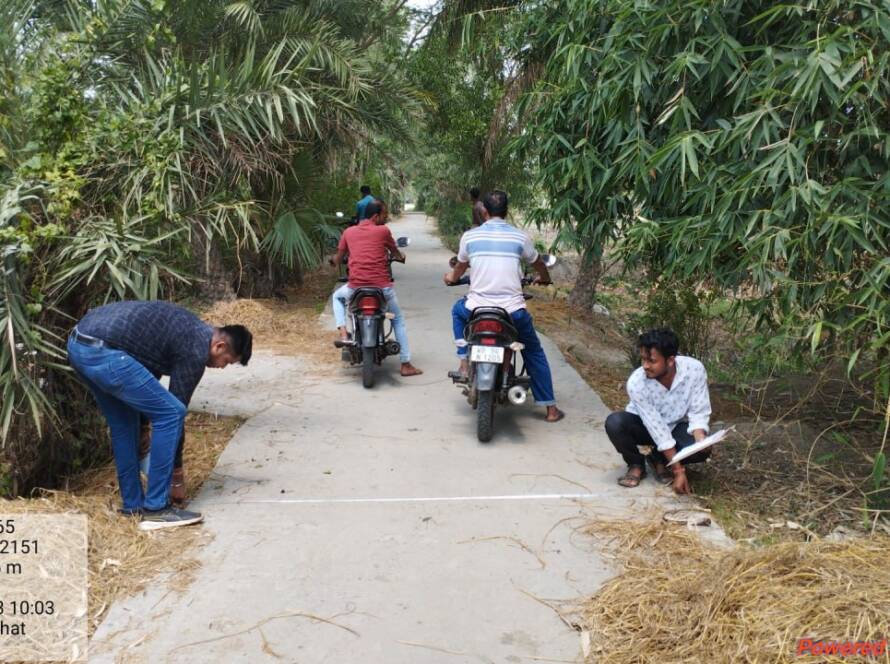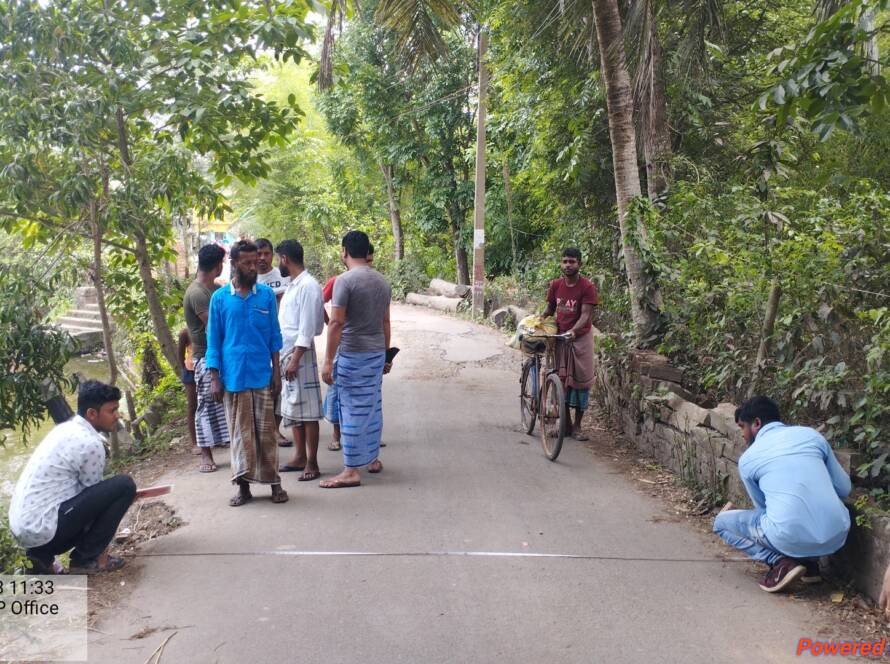
What We Provide you?
Highway engineering services refer to a range of professional activities and expertise dedicated to the planning, design, construction, operation, and maintenance of highways and road systems. These services are essential for developing, upgrading, and managing transportation infrastructure to ensure safe, efficient, and sustainable movement of people and goods
Drone survey and topographical survey
A drone survey involves the use of unmanned aerial vehicles (UAVs), commonly known as drones, equipped with sensors and cameras to capture aerial imagery and data. A topographical survey, also known as a land survey or topo survey, involves the measurement and mapping of the natural and man-made features of a piece of land.
Soil Investigation
Soil investigation, also known as geotechnical investigation or soil testing, is a crucial process in civil engineering and construction that involves the collection and analysis of soil and subsurface materials at a specific site. The primary purpose of soil investigation is to understand the physical and engineering properties of the soil, which is essential for making informed decisions in the design and construction of structures such as buildings, bridges, roads, and foundations.
Traffic survey and analysis
Traffic surveys and analysis are essential components of transportation engineering and urban planning. These processes involve collecting and studying data related to the movement of vehicles, pedestrians, and other modes of transportation to assess traffic patterns, congestion, and overall system performance. The information gathered from these surveys helps in making informed decisions for the design, operation, and improvement of transportation systems.
Geometric design
Geometric design in the context of transportation engineering refers to the process of determining the dimensions and layout of the physical elements of a road or highway. The goal of geometric design is to create a road network that is safe, efficient, and provides for the smooth and orderly movement of traffic.
Pavement Composition assessment
Pavement composition assessment involves the evaluation of the materials and structural elements that make up a road or pavement. This assessment is essential for understanding the condition of the pavement, determining its structural capacity, and planning maintenance or rehabilitation activities
Cross Drainage Structure Design
Cross drainage structures are essential components in highway and civil engineering, designed to allow the passage of water across a road or railway where a natural stream or watercourse intersects the transportation route. The design of cross drainage structures is crucial to ensure the safety and integrity of the road or railway, prevent erosion, and manage water flow effectively.
Construction material testing
Construction material testing is a process used to evaluate the properties and performance of materials used in construction projects. The testing ensures that the materials meet specified standards, conform to design requirements, and have the necessary characteristics to perform effectively in their intended applications. Construction material testing is a critical aspect of quality control in the construction industry, helping to ensure the safety, durability, and integrity of structures. The testing process typically involves both laboratory and field tests, depending on the nature of the materials.
Design of all types of CD structures
Designing various types of cross-drainage (CD) structures involves a comprehensive engineering approach to ensure their stability, functionality, and safety. The type of CD structure selected depends on factors such as the topography, hydrology, and the specific needs of the project.
Details estimation of costing and quantities
The detailed estimation of costing and quantities in construction involves a thorough analysis of the project requirements, materials, labor, equipment, and associated costs. This process is crucial for budgeting, project management, and ensuring that the construction project stays within financial constraints
Benefits Of Highway Engineering Services
There are several benefits of highway engineering services. You must be well aware of it before seeking the services. Some of the key benefits of road and highway engineering services are as follows:-
Improved Safety
Implementation of modern highway design standards and safety features reduces the risk of accidents and improves overall road safety. Traffic engineering measures, such as proper signage and signalization, contribute to safer driving conditions.
Efficient Traffic Flow
Well-designed highways and traffic management systems optimize traffic flow, reducing congestion and travel times. Intelligent Transportation Systems (ITS) can be implemented to monitor and manage traffic in real-time, improving overall transportation efficiency.
Enhanced Connectivity
New highway projects and upgrades contribute to improved connectivity between cities, regions, and economic centers. Better connectivity supports economic development, trade, and tourism.
Economic Development
High-quality transportation infrastructure facilitates the movement of goods and people, supporting economic growth and development. Improved accessibility can attract investments and businesses to regions served by well-developed highways.
Reduced Environmental Impact
Implementation of environmentally friendly highway design and construction practices helps minimize the ecological impact of transportation projects. Proper planning and mitigation strategies can address potential environmental concerns associated with highway development.
Sustainability
The adoption of sustainable practices, such as the use of recycled materials and energy-efficient technologies, contributes to the long-term sustainability of highway infrastructure. Sustainable design principles can also include considerations for wildlife conservation and ecosystem protection.
Increased Convenience & Comfort
Well-designed highways provide a comfortable and convenient travel experience for the public. Adequate rest areas, service facilities, and amenities along highways enhance the overall travel experience.
How Does Highway Engineering Services Work?
Most of the time people have this question in their mind about how highway engineering services work. Let's find out the ways to have a better idea of it. Some of the essential factors to take care of are as follows:-
Need Assessment Planning
- Traffic Analysis: Evaluate current traffic patterns and project future demands.
- Feasibility Studies: Assess the need for new highways or improvements to existing ones.
- Environmental Impact Assessment: Identify potential environmental and social impacts.
Developing The Conceptual Design
Develop a conceptual design based on the findings of the needs assessment. Consider alignment, grade, and overall layout of the highway.
Detailed Design
Create detailed engineering plans, including geometric design, pavement design, drainage design, and structural design. Adhere to safety standards, regulations, and environmental considerations.
Construction Planning
Develop a comprehensive construction plan, including schedules, budgets, and resource allocation. Consider logistics, materials, and construction methodologies.
Construction
Oversee the construction process to ensure that it adheres to the detailed design and plans. Manage construction activities, quality control, and safety measures.











